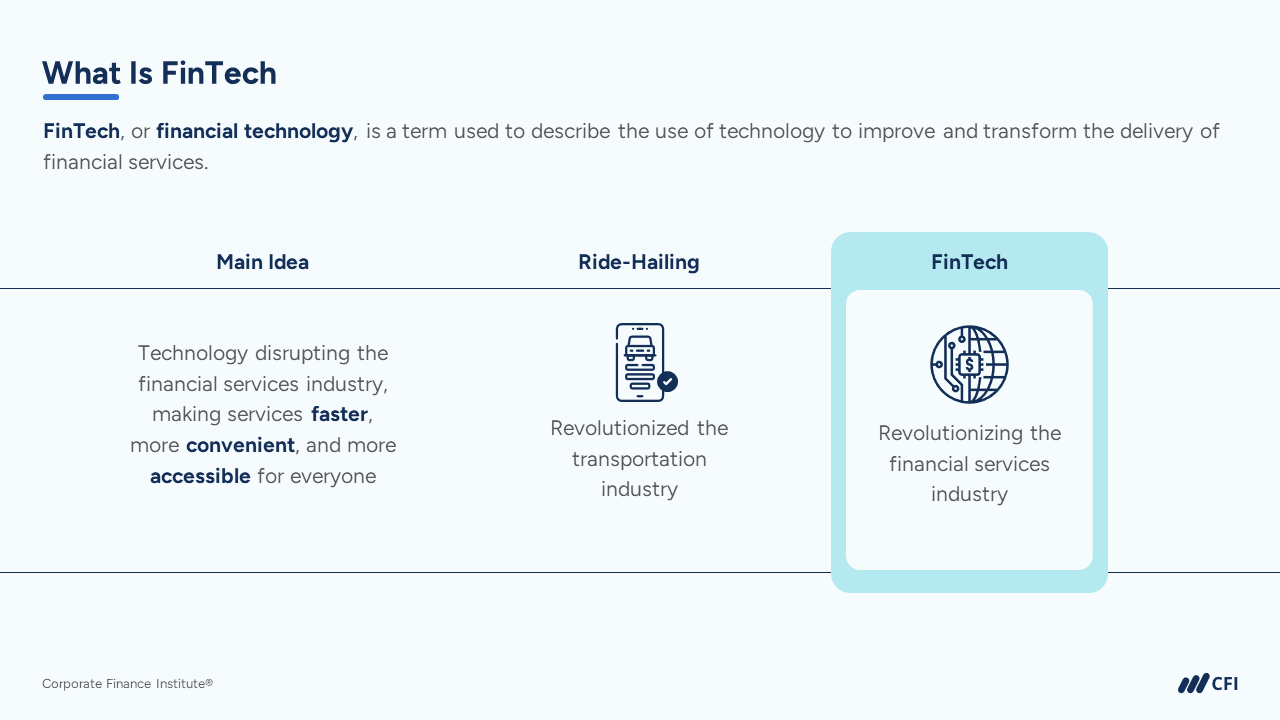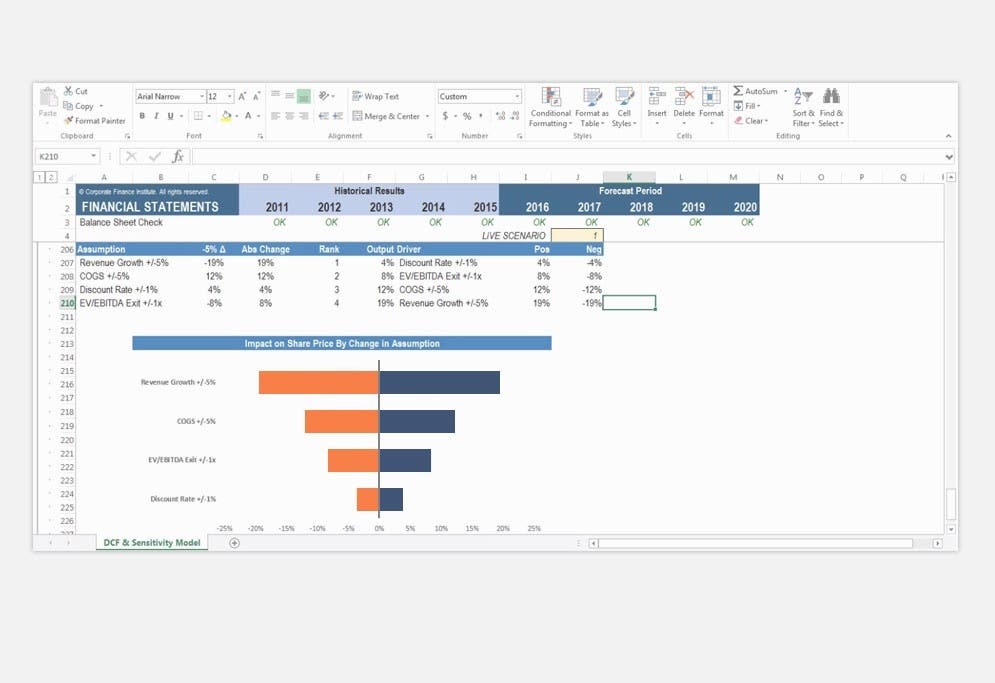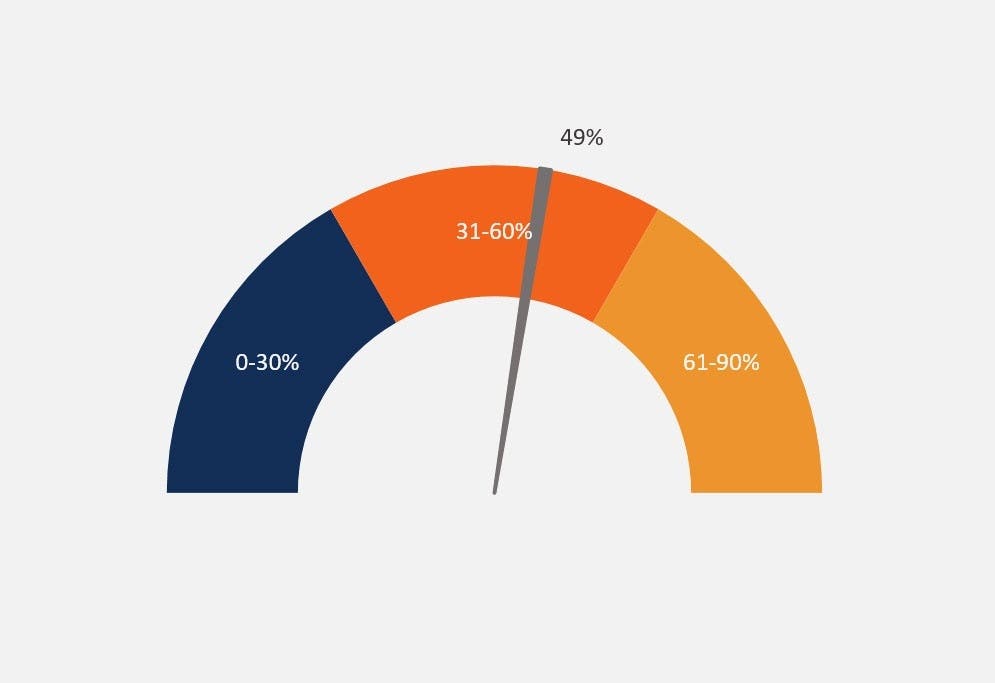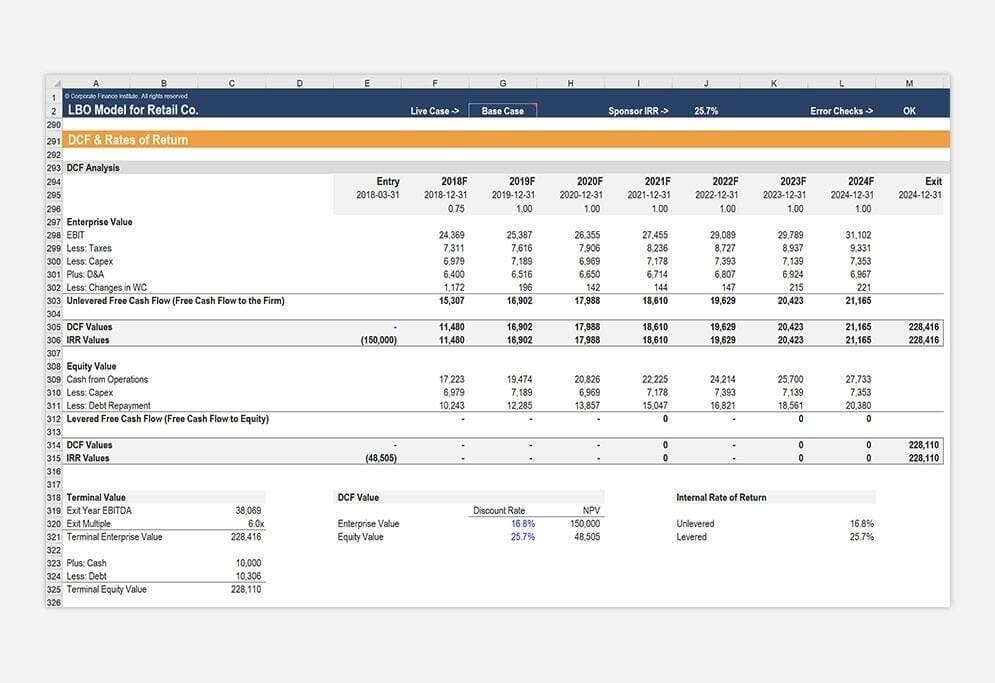
- What is Fintech?
- Fintech Skills
- Top Fintech Certifications and Courses
- 1. Wharton Fintech Foundations and Applications of Financial Technologies Specialization
- 2. Introduction to FinTech - CFI
- 3. Harvard’s Office of the Vice Provost for Advances in Learning (VPAL) Fintech Online Course
- 4. Professional Certificate in Fintech: The Future of Finance from the University of Texas at Austin
- 5. Professional Certificate in FinTech - University of Hong Kong
- 6. FinTech Law and Policy Course - Duke University
- 7. Financial Technology (Fintech) Innovations - University of Michigan
- Jobs You Can Acquire After Completing Fintech Courses and Certifications
- How to Choose the Right Fintech Certificate or Course for You
- Take Advantage of Fintech Certifications and Courses Today
Top Fintech Courses and Certifications to Launch Your Career
One of the top growing industries today is fintech, otherwise known as financial technology. As a result, many people are pursuing jobs in this field of work. To acquire the knowledge and skills that you’ll need to work in the fintech industry, enroll in fintech courses or certifications.

What is Fintech?
Fintech, which stands for financial technology, is an industry that focuses on using technology to streamline or improve financial services. Common examples of fintech include electronic and mobile banking, investment management apps, cryptocurrencies, and budgeting and personal finance apps.
Fintech Skills
To gain a fintech job in the financial sector, you must first acquire certain fintech skills. The best way to acquire these skills is to take fintech courses and earn valuable certifications.
Some of the top fintech skills include the following:
Coding
Coding is arguably the most important fintech skill. This is because you’ll need to use coding to build software and digital finance products, analyze and manipulate financial data, and create visualizations to explain what financial data says.
Financial Modeling
The ability to compile financial models is also an important fintech skill. Financial models are spreadsheet summaries of business earnings and expenses. Fintech data analysts use financial models to make educated predictions about what will happen with businesses in the future. Thanks to AI and machine learning, fintech data analysts have been able to streamline the financial modeling process.
Data Analytics
Conducting data analytics is the ability to use software to collect, analyze, and visualize data. Because fintech professionals are always analyzing and managing data from cash flow statements, balance sheets, income statements, financial ratios, and market trends, it’s vital that they have solid data analytics skills. Today, fintech professionals often use data analytics tools to make predictions and take recommended actions based on future market behavior in the financial sector.
Data Visualization
Data visualization is a graphical representation of data that makes it easier to understand and interpret. For example, a pie chart, bar graph, or infographic are all forms of data visualization.
It’s important for fintech professionals to know how to create data visualization. This can save them time when analyzing or interpreting data, and because data visualization clearly represents data, it also helps fintech professionals reduce data interpretation errors.
Top Fintech Certifications and Courses
Now that we’ve gone over the skills you should try to learn in your fintech certifications and courses, it’s time to tell you about some fintech courses and certifications you can take. Some of the top fintech certifications and courses are detailed below.
1. Wharton Fintech Foundations and Applications of Financial Technologies Specialization
This fintech course offered by the University of Pennsylvania’s Wharton School will teach you about fundamental modern investment strategies involving fintech. It will also teach you about the nuanced functions behind payment methods and financial regulations, as well as robo-advising, crowdfunding, peer-to-peer lending, cryptocurrency, and blockchain.
If you want a comprehensive understanding of financial technologies, this is the course for you. This course is also beneficial for anyone who wants to stay on top of innovations and trends in the finance industry.
2. Introduction to FinTech – CFI
This Introduction to FinTech course offered by CFI is the perfect online course to learn the fundamentals of finance and technology. You’ll also learn about the main areas of fintech and how they differ from traditional practices.
In addition, you’ll learn about the different laws, policies, regulations, and compliance that govern the industry. The CFI Introduction to Fintech course will even teach you about the key fintech skills that you’ll need to be successful in the field. Finally, this CFI course will give you the ability to learn about the current and future landscape of the fintech field.
3. Harvard’s Office of the Vice Provost for Advances in Learning (VPAL) Fintech Online Course
This Harvard fintech course will educate you on the industry’s regulatory frameworks and infrastructure. It will also give you the opportunity to learn how organizations have filled gaps left by existing financial institutions to meet the shifting needs of customers, as well as the technologies and innovations transforming finance and business.
One benefit of this course is that it presents real-life challenges that reflect the fintech environment, which can help individuals learn whether or not fintech is for them.
4. Professional Certificate in Fintech: The Future of Finance from the University of Texas at Austin
The Professional Certificate in Fintech: The Future of Finance from the University of Texas at Austin certification course contains four modules. The first module provides an overview of the fintech sector, focusing on what financial service companies can do, how they create value, and how emerging technologies can do better.
The second module focuses on blockchain technology for business, including cryptography, hashing, encryption and decryption, cryptocurrencies, initial coin offerings (ICOs), and any applicable regulations.
The last two modules in this fintech certification course focus on machine learning, AI, API, and the Internet of Things. Together, these four modules provide finance and business leaders, managers, executives, and bankers with what they need to know about the intersection of finance and technology.
5. Professional Certificate in FinTech – University of Hong Kong
The Professional Certificate in Fintech from the University of Hong Kong is a fintech certificate course that will teach you about fintech sectors and the startups, firms, banks, financial institutions, and regulators that play a major role in the fintech industry. This fintech course has three different sections. The first section introduces the course and what it is about, the second section focuses on fintech in terms of blockchain, and the third section focuses on fintech in terms of security/risk.
The section of this fintech certificate course that focuses on blockchain will help you understand the technological and cryptographic aspects of blockchain technology, as well as its limitations. Taking this course will also provide you with the opportunity to learn about RegTech and security within the fintech industry.
6. FinTech Law and Policy Course – Duke University
The Fintech Law and Policy Course from Duke University focuses on the legal and regulatory aspects of fintech technologies. Through this fintech course, you’ll learn about the legal, regulatory, and policy issues within fintech services such as peer-to-peer lending, new payment methods, wealth management technologies, account aggregators, cryptocurrencies, and initial coin offerings.
7. Financial Technology (Fintech) Innovations – University of Michigan
When taking the Financial Technology (Fintech) Innovations course from the University of Michigan, you’ll learn the difference between legal payment statements and new payment innovations. You’ll also learn to interpret a credit score and identify its determinants.
In addition, this course will teach you about blockchain technology and its applications. You’ll even learn how to implement smart investing techniques. The four sub-courses that make up the Fintech Law and Policy Course include The Future of Payment Technologies, Blockchain and Cryptocurrency Explained, Raising Capital: Credit Tech, Coin Offerings, and Crowdfunding, and Innovations in Investment Technology: Artificial Intelligence.
Jobs You Can Acquire After Completing Fintech Courses and Certifications
Once you take the fintech courses and certifications best suited for your individual goals and needs, you can use your newfound fintech education to help you create or continue building a fintech career. Some fintech professions that you can pursue after receiving the proper education include the following:
- Data scientist
- Data analyst
- AI and machine learning specialist
- Cybersecurity specialist
- Fintech web developer
How to Choose the Right Fintech Certificate or Course for You
When deciding on a fintech certificate or course, consider what you need to learn to achieve your individual career goals. For example, if you are pursuing a career as a data scientist, consider taking a fintech course or certification that will teach you how to use artificial intelligence and machine learning to collect and analyze fintech data.
Another factor that you should consider when deciding which fintech course or certification to take is where you’re at in your fintech career. For example, if you’re just starting your career and learning all there is to know about financial technology innovation, you should take an online fintech course for beginners. That way you can make sure that you receive the fintech educational foundation that you need to be successful in the field long-term.
If, on the other hand, you’re further along in your fintech career and are looking to build upon your knowledge and skills in order to provide fintech solutions to issues in the financial sector, then you should take an intermediate or advanced-level fintech course.
You should also consider cost and time commitment before enrolling in a fintech course or certificate program. For example, if you’re always busy and don’t have the time to take an online fintech program, you might postpone your plans until you have more time or take a self-paced fintech course or certificate program.
When it comes to cost, consider your budget for a fintech education. If you’re willing to spend more money on a course or certification, then simply choose the program that will teach you the information that you want to learn. This may even mean pursuing a bachelor’s or master’s degree in finance and technology.
If you’re on a budget and want to save as much money as possible, consider enrolling in one of the free fintech course programs, including those offered by Coursera. You can currently enroll in the CFI Introduction to Fintech course for free as well.
Take Advantage of Fintech Certifications and Courses Today
Ultimately, the choice of which fintech course or certificate course to take depends on you. To build a strong foundation of knowledge and skills in fintech that will allow you to get a job at one of the top fintech companies, we advise that you take advantage of the CFI Introduction to Fintech course program. You can also turn to CFI for tips on how to break into the fintech industry.
Additional Resources
8 Digital Assets and Blockchain Courses for Finance
AI for Finance: Top AI Tools for a Finance Professional
Data Analysis Courses for Finance Professionals

Create a free account to unlock this Template
Access and download collection of free Templates to help power your productivity and performance.
Already have an account? Log in
Supercharge your skills with Premium Templates
Take your learning and productivity to the next level with our Premium Templates.
Upgrading to a paid membership gives you access to our extensive collection of plug-and-play Templates designed to power your performance—as well as CFI's full course catalog and accredited Certification Programs.
Already have a Self-Study or Full-Immersion membership? Log in
Access Exclusive Templates
Gain unlimited access to more than 250 productivity Templates, CFI's full course catalog and accredited Certification Programs, hundreds of resources, expert reviews and support, the chance to work with real-world finance and research tools, and more.
Already have a Full-Immersion membership? Log in






